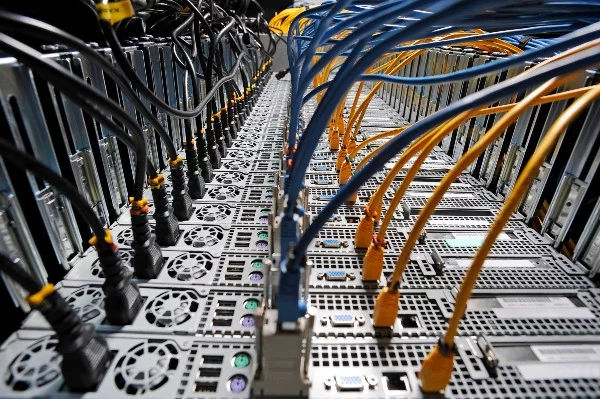Most established businesses have some sort of security software installed on computers, servers, and on other hardware. But protecting a single laptop is a very different task from defending the vital digital infrastructure a business relies on for its mission-critical operations.
That’s where enterprise IT security comes in.
Why Is Enterprise IT Security So Important?
Almost everything a business does today is stored, processed, and transmitted electronically. From HR records and customer data to proprietary design information, without access to IT systems, businesses large and small would grind to a halt.
Bad actors with nefarious intentions have many ways of exploiting our reliance on computer systems. Some will try to steal it, either to use themselves or to sell to another unscrupulous party. Others will leak it to the public without trying to profit from it directly, and an increasingly large group of cybercriminals will lock you out of your own network and demand a ransom to regain access.
The immediate financial damage of such attacks can run into the millions, with some unfortunate victims losing customers, having to cancel orders, or even being driven out of business completely. Alarmingly, 60% of small and medium-sized businesses close within six months of a cyber attack.
There are also legal risks you need to consider. You don’t have to look very hard to find examples of businesses that have been taken to court after their systems were breached or customer data was stolen to then be used for illegal purposes.
Such events have real consequences for the people whose personal information gets compromised. Justifiably, businesses have a legal duty to prevent these breaches.
Beyond being taken to court, a security breach like this can also damage your business’ reputation, causing you to lose customers who decide they can’t trust you to protect the data they share with you.
Sure, good insurance, lawyers, and PR consultants can clean up this mess. But preventing these issues in the first place is cheaper, easier, and much less stressful.
How to Improve Your Enterprise IT Security
While downloading a free antivirus application for your family computer is going to protect you from most security threats you’ll face at home, good enterprise IT security is built on a multi-layered approach.
- Get buy-in from those at the top. Without the CEO, CFO, COO, and their colleagues on board, any IT security
 strategy is destined to fail. These people will often be targeted more frequently due to their privileged positions, so it is vital they understand why strengthening your enterprise IT security is so important. Ultimately, they need to understand the risks that the threats pose to them and that the cost of prevention is much cheaper than the cost of a cure.
strategy is destined to fail. These people will often be targeted more frequently due to their privileged positions, so it is vital they understand why strengthening your enterprise IT security is so important. Ultimately, they need to understand the risks that the threats pose to them and that the cost of prevention is much cheaper than the cost of a cure. - Setup strict identity and access management (IAM) controls. Access to certain resources on a network should be granted only to those that need it. Even if you can trust everyone in your organization not to do anything malicious, unnecessary permissions make it easier for someone to compromise a user account with the privileges needed to steal or corrupt data. Login credentials should also be strong, following best practices for password standards and using multi-factor authentication wherever possible.
- Teach everyone about cybersecurity. Enterprise IT security is not just the responsibility of the people in the IT department. Everyone has a part to play. Each employee should be taught how to spot phishing attacks, to verify requests for payments, and how to keep their passwords secure. It’s often best to explain why good security practices are important too, not just what they are, as it can help get everyone on board.
- Use encryption. Almost all data should be encrypted, both when it’s being stored and when it’s being transmitted. Cybercriminals will often try to intercept messages and file transfers, either to steal their contents or change them before it arrives at their destination. Endpoints should also be encrypted wherever possible, taking advantage of native tools like Bitlocker, in case they’re lost or stolen.
- Have robust backups and a disaster recovery plan. No enterprise IT security system can block 100% of attacks, so it’s important to have a plan for if one sneaks through. Backing up all data regularly and testing that it can be fully recovered can prevent the need to pay ransoms or try to decrypt your files after an attack. Many companies will also need redundant infrastructure that can be fired up should an attack take out a network, otherwise, you could be days or weeks without an operational business.
Need help bolstering your business’s enterprise IT security? Take our security assessment quiz to see what areas you need to improve on or contact us to speak to one of our experts.


 strategy is destined to fail. These people will often be targeted more frequently due to their privileged positions, so it is vital they understand why strengthening your enterprise IT security is so important. Ultimately, they need to understand the risks that the threats pose to them and that the cost of prevention is much cheaper than the cost of a cure.
strategy is destined to fail. These people will often be targeted more frequently due to their privileged positions, so it is vital they understand why strengthening your enterprise IT security is so important. Ultimately, they need to understand the risks that the threats pose to them and that the cost of prevention is much cheaper than the cost of a cure.



 FREE – Risk Assessment
FREE – Risk Assessment